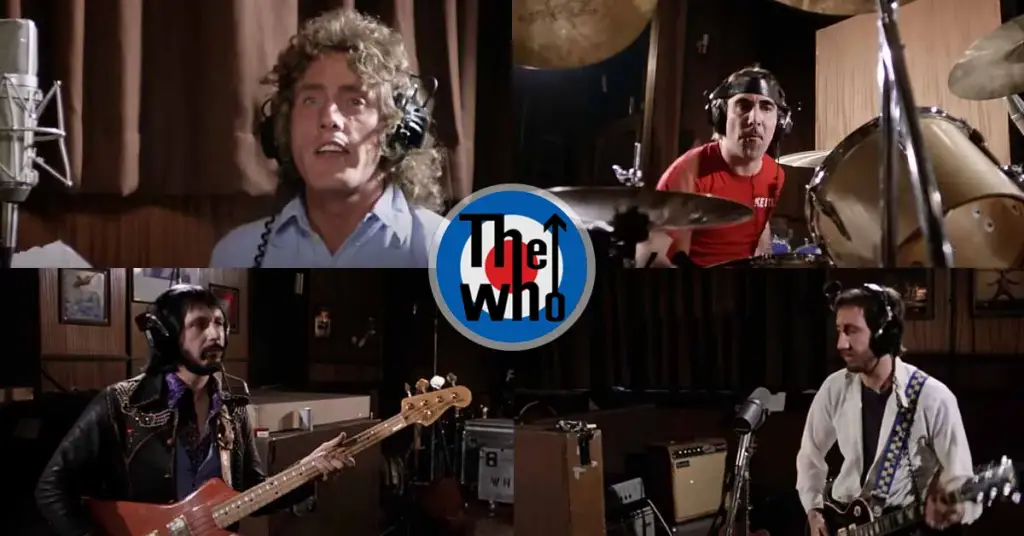Few bands have explored personal angst, rebellion, and social alienation with the intensity and honesty of The Who. And in 1978, after years of revolutionizing rock music, they delivered one of their most introspective and enduring anthems: “Who Are You.”
At once a thunderous rocker and a soul-searching confession, “Who Are You” finds frontman Roger Daltrey howling into the void while Pete Townshend wrestles with fame, frustration, and identity. The result is not only one of the band’s biggest hits—it’s a song that still resonates like a primal scream in the modern age.
Born from Chaos
The late ’70s were a turbulent time for The Who. The band was dealing with internal strain, creative pressure, and the looming shadow of punk rock, which had emerged to challenge the very bands The Who helped inspire. Townshend, ever the philosopher of the group, was feeling burned out and disconnected—struggling with alcoholism and wondering what place his band still held in a rapidly shifting musical landscape.
After a particularly chaotic night of drinking and wandering London’s streets (a night that reportedly ended with him passed out in a Soho doorway), Townshend turned that experience into poetry—and eventually, into “Who Are You.”
“I woke up in a Soho doorway / A policeman knew my name…”
It’s gritty, real, and razor-sharp—just like the song itself.
Musical Muscle and Melancholy
From its opening synth stabs to the crashing power chords and layered vocals, “Who Are You” is a masterclass in tension and release. The song blends Townshend’s cerebral songwriting with Daltrey’s raw vocal force, John Entwistle’s steady bass, and Keith Moon’s explosive, barely-contained drumming—his last recorded performance before his tragic death just weeks after the album’s release.
Musically, “Who Are You” showcases The Who at their most dynamic: the track oscillates between quiet reflection and arena-sized fury. The famous chorus—punctuated by Daltrey’s now-iconic scream of:
“Who the f* are you?!”**
—was censored on radio but left intact on album versions. It captured exactly what made The Who different: they were unfiltered, unafraid, and always walking the line between chaos and clarity.
A Song of Self-Examination
Beneath the rock fury lies a deeply personal crisis. Townshend wasn’t just writing about being lost in the music industry—he was writing about being lost in himself. The song questions the role of the artist, the nature of fame, and the disorienting feeling of becoming a brand rather than a person.
“I spit out like a sewer hole / Yet still receive your kiss…”
There’s a sense of self-loathing and gratitude intertwined. It’s not the cry of a man who hates his life, but one who can’t make sense of his place in it—a theme that resonates with listeners of every generation.
Commercial and Cultural Impact
“Who Are You” became a Top 20 hit in both the UK and the U.S., and the title track of the band’s 1978 album, which went platinum. But the song’s cultural reach extended far beyond the charts.

In the 2000s, “Who Are You” took on a second life as the theme song for the hit TV series CSI: Crime Scene Investigation. That exposure introduced the track to an entirely new audience—and ensured its place in the broader pop culture landscape.
Even outside of television, the song endures because its message never loses relevance. In an era of online personas, identity crises, and public performance, “Who Are You” feels as vital now as it did in 1978.
Final Thoughts
“Who Are You” isn’t just a classic rock staple—it’s a psychological document, a musical paradox of rage and vulnerability, ego and confusion. It’s The Who at their most self-aware and their most powerful—a band still asking questions after all they’d conquered.
So, who are you?
A rebel? A seeker? A fan trying to make sense of the noise?
Turn it up, and you might just find out.


Facebook Comments